Strong SaaS security starts with accurate configuration of key authentication policies such as SSO and MFA. Recent data breaches, including the Snowflake incident, highlight the need for an in-depth, proactive SaaS security posture combined with a multi-layer threat detection and response strategy.
Ensuring your SaaS security solution integrates with the latest identity and access management platforms, providing advanced identity and authentication controls, is critical to an effective SaaS security program.
In this blog, you’ll learn how AppOmni supports Okta Identity Engine (OIE) to help your organization achieve SaaS security that delivers dynamic authorization and granular access control.
What is Okta Identity Engine (OIE)?
Okta is a leading provider of identity and access management solutions. In 2022, they introduced the Okta Identity Engine (OIE), offering organizations more flexible identity and access management capabilities compared to Okta Classic.
Although OIE was introduced more than two years ago, many organizations are just now starting to roll out their deployments. OIE provides a new authentication pipeline that incorporates rich user, device, and application context at every step of the identification process.
Key features of OIE include:
• Global Session Policies and Authentication Policies with App Context: Customize authentication needs based on security requirements at the app level
• Passwordless Authentication: Use emailable magic links for single click access
• Device Context: Achieve quick authentication from registered devices
• Progressive Profiling: Learn more information about users with each login
• Captcha Integration: Enhance authentication, self-service recovery, and signup flows
Using OIE with The AppOmni SaaS Security Platform
The right SaaS security solution should offer extensive support for both Okta Identity Engine (OIE) and Okta Classic. While many SaaS security vendors claim to support Okta, this often means limited support only for the legacy Okta Classic platform or Auth0.
While OIE introduces several new capabilities, not all features from Okta Classic are available in OIE. AppOmni bridges this gap by providing comprehensive coverage for both OIE and Okta Classic, ensuring that customers can set up the right policies at any stage of their Okta deployment.
Starting with the AppOmni Policy Library, administrators can choose out-of-the-box AppOmni posture settings for Okta Classic and/or Okta Identity Engine.
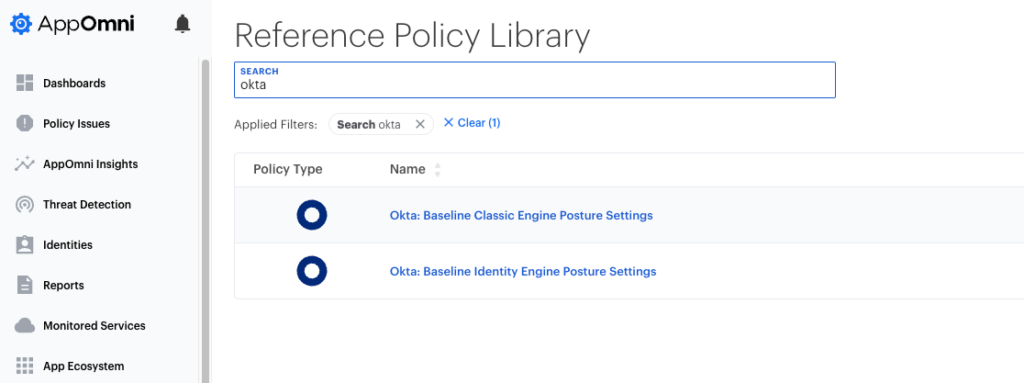
SaaS security administrators can work with application owners to set up comprehensive app-specific authentication rules using a combination of Okta OIE and Classic rules.
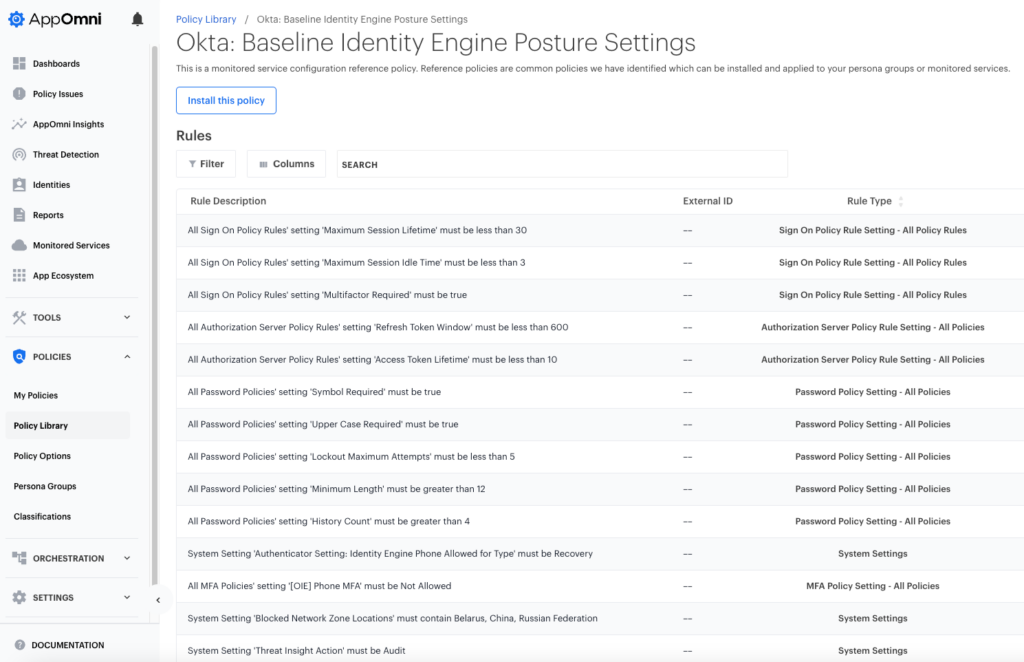
Comprehensive Support for Okta as a Monitored Service
AppOmni also includes support for Okta Identity Engine as a monitored service with documentation and recommendations to guide administrators on authentication policies and rules.
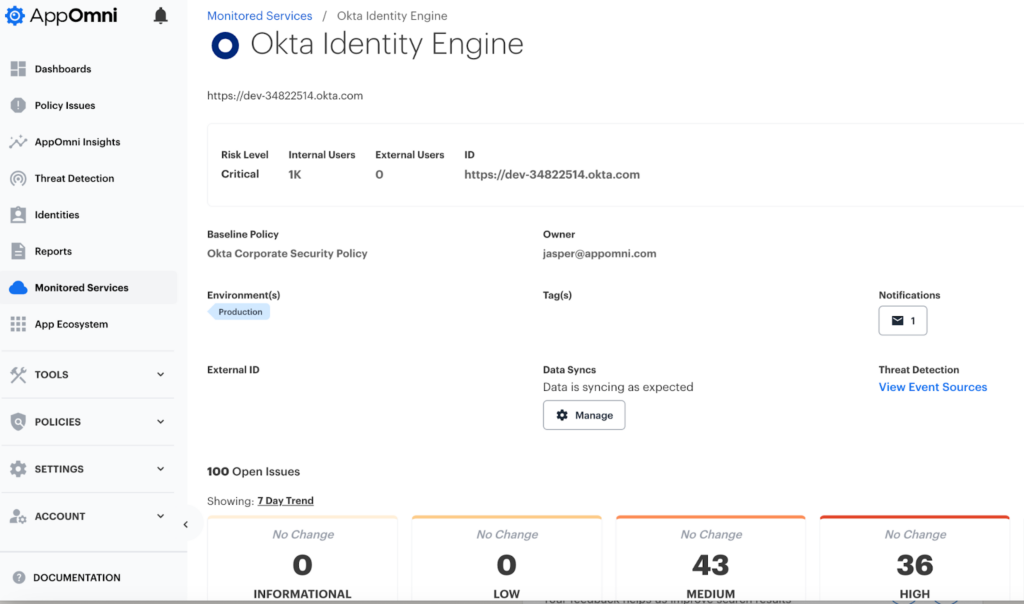
AppOmni can connect with Okta (without requiring Super Admin permissions) using either traditional OIDC authentication or the more modern Service App authentication method, which utilizes demonstrated proof of possession (DPoP), a highly secure specification and Okta’s recommended process for machine-to-machine authentication.

OIE policies help administrators manage access to applications and APIs based on several conditions, such as user and group membership, device, location, or time. For sensitive applications, administrators can also require additional authentication steps. As organizations migrate to enhanced identity management capabilities with OIE, it’s crucial to evaluate SaaS security vendors’ support for OIE.
AppOmni has helped global enterprises, including over 25% of Fortune 100 businesses, secure their SaaS environments with a comprehensive security strategy. Talk to us about how you can enhance your SaaS security and prevent business disrupting data breaches.

Get a Custom Demo
Find out how to secure your SaaS environments with Okta Identity Engine and AppOmni with a custom demo of the AppOmni platform.
Additional Resources
-
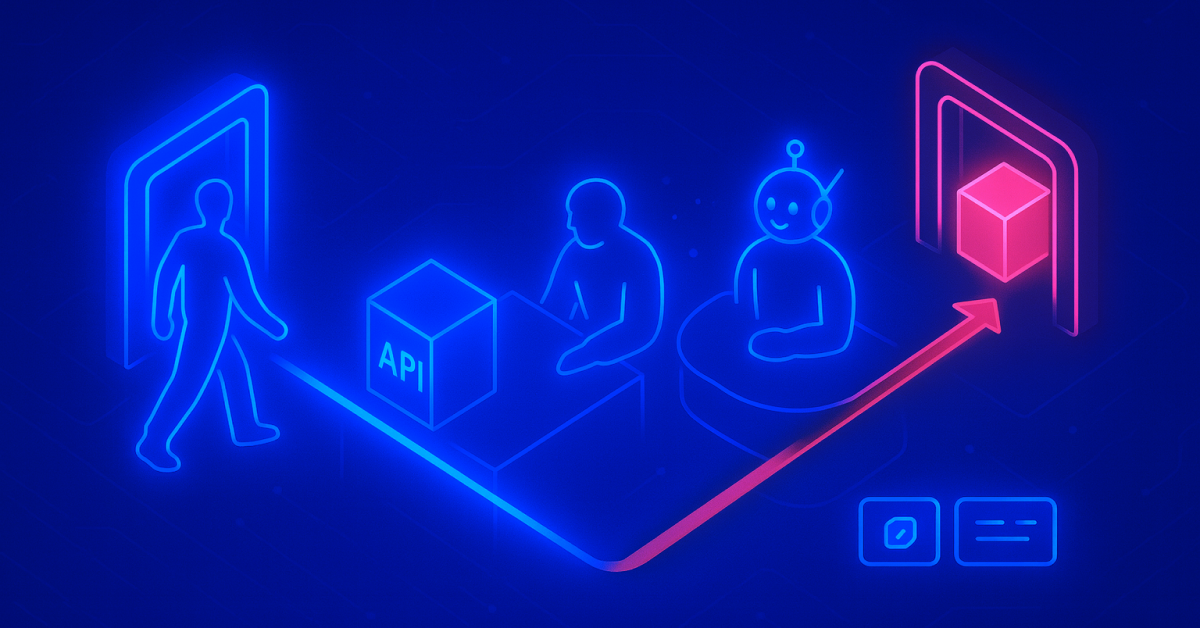
BodySnatcher (CVE-2025-12420): A Broken Authentication and Agentic Hijacking Vulnerability in ServiceNow
BodySnatcher (CVE-2025-12420) exposes a critical agentic AI security vulnerability in ServiceNow. Aaron Costello’s deep dive analyzes interplay between Virtual Agent API and Now Assist enabled in this exploit.
-
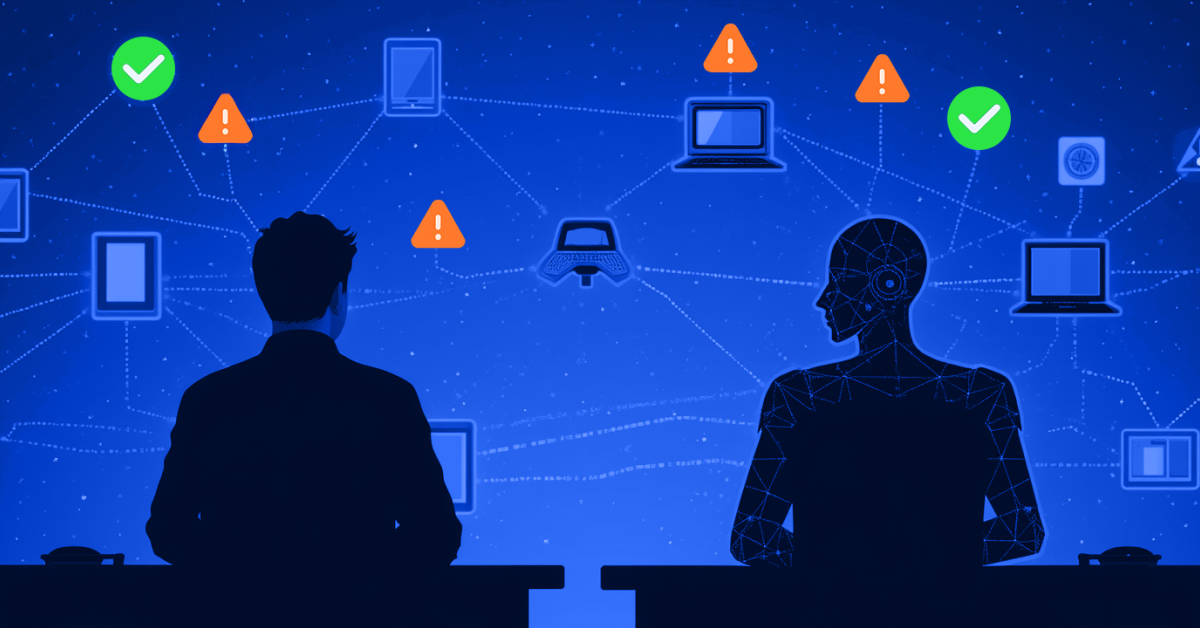
When AI Turns on Its Team: Exploiting Agent-to-Agent Discovery via Prompt Injection
Aaron Costello uncovers how second-order prompt injection turns AI agents against their own systems. He explains how attackers exploit ServiceNow’s Now Assist and offers clear guidance on securing AI collaboration.
-
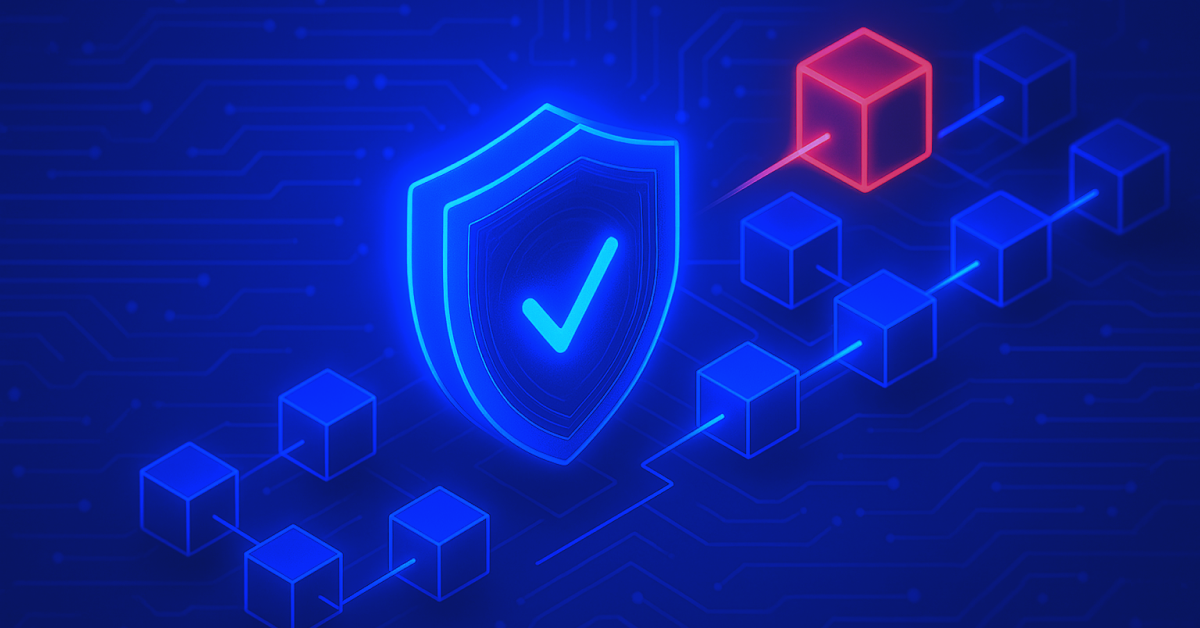
Heisenberg: How We Learned to Stop Worrying and Love the SBOM
Turn SBOMs into supply chain defense with Heisenberg, an open source tool developed by Max Feldman and Yevhen Grinman. It stops risky pull requests (PRs) before they merge.